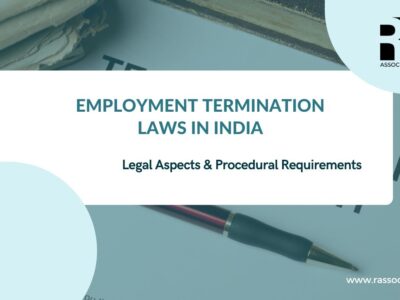As the Indian economy continues to grow at a rapid pace, it has become an attractive destination for businesses worldwide. However, with growth comes challenges, and one of the significant challenges faced by the Indian business environment is the issue of dispute resolution. Arbitration has become the preferred mode of dispute resolution for international businesses, providing a private, flexible, and cost-effective alternative to traditional litigation. As more businesses expand their global reach, understanding the arbitration landscape in various jurisdictions is essential. This article delves into the challenges and opportunities in the Indian Arbitration and Dispute Resolution landscape for international businesses.

Challenges and Opportunities in the Indian Arbitration and Dispute Resolution Landscape
The Indian Arbitration Scenario
The Arbitration and Conciliation Act, 1996
India’s arbitration landscape is primarily governed by the Arbitration and Conciliation Act, 1996 (the ‘Arbitration Act’). The Arbitration Act is based on the UNCITRAL Model Law and provides a comprehensive framework for both domestic and international arbitration.
Recent Developments
India has seen significant developments in arbitration over the past few years, aiming to align the country’s dispute resolution framework with international standards. This includes the introduction of the 2015 and 2019 amendments to the Arbitration Act, focusing on improving arbitration efficiency, reducing court intervention, and promoting institutional arbitration.
Challenges Faced by International Businesses in Indian Arbitration
- Procedural Delays
One of the primary challenges faced by international businesses in Indian arbitration is procedural delays. Despite the legislative intent to expedite arbitration proceedings, the lack of strict timelines often results in extended delays.
- High Costs
Arbitration in India can be expensive, particularly in ad hoc proceedings, where parties bear the costs of the arbitrators, venue, and other administrative expenses. The absence of a comprehensive cost regime adds to the unpredictability of the arbitration process.
- Judicial Intervention
The Indian judiciary has historically been interventionist in arbitration matters, leading to delays and uncertainty. Although recent amendments to the Arbitration Act have attempted to reduce court intervention, however, concerns regarding judicial overreach persist.
- Limited Pool of Arbitrators
India suffers from a limited pool of qualified arbitrators, often leading to the appointment of retired judges who may not have the requisite expertise or understanding of complex commercial disputes.
Opportunities for International Businesses in Indian Arbitration
- Pro-Arbitration Legislative Reforms
India’s recent amendments to the Arbitration Act demonstrate a pro-arbitration stance, creating an environment conducive to the growth of arbitration. These reforms aim to streamline the arbitration process, promote efficiency, and reduce judicial intervention.
- Development of Institutional Arbitration
India is witnessing a shift towards institutional arbitration, with organizations like the Mumbai Centre for International Arbitration (MCIA) and Delhi International Arbitration Centre (DIAC) gaining prominence. These institutions provide a more structured and cost-effective alternative to ad hoc arbitration.
Government Initiatives
The Indian government has undertaken various initiatives to promote arbitration, such as establishing the New Delhi International Arbitration Centre (NDIAC) and proposing the establishment of an Arbitration Promotion Council of India (APCI). These efforts signal a strong commitment to developing a robust arbitration ecosystem.
Tips for International Businesses to Navigate the Indian Arbitration Landscape
- Choose the right arbitration institution: Opt for established institutions like MCIA, DIAC, or NDIAC that provide a structured framework and support for arbitration proceedings.
- Select experienced arbitrators: Ensure that the arbitrators appointed have the necessary expertise in handling complex commercial disputes and are well-versed in international arbitration practices.
- Draft clear and unambiguous arbitration agreements: Clearly specify the governing law, the seat of arbitration, and the procedure to be followed in the arbitration agreement to minimize potential disputes and court intervention.
- Stay updated on legislative reforms: Keep abreast of the latest developments and amendments in Indian arbitration law to ensure compliance with the evolving legal landscape.
Conclusion
While the Indian arbitration landscape presents certain challenges for international businesses, recent reforms and government initiatives signal a promising future for arbitration in the country. By understanding the nuances of the Indian arbitration system and adopting a strategic approach, international businesses can successfully navigate the dispute resolution process and capitalize on the opportunities presented by this emerging market.
FAQs
What is the primary legislation governing arbitration in India?
The Arbitration and Conciliation Act, 1996 is the primary legislation governing arbitration in India.
How has India's arbitration landscape evolved in recent years?
India has introduced several amendments to the Arbitration Act and government initiatives to align its dispute resolution framework with international standards, promote institutional arbitration, and reduce court intervention.
What are the main challenges faced by international businesses in Indian arbitration?
Procedural delays, high costs, judicial intervention, and a limited pool of qualified arbitrators are some of the main challenges faced by international businesses in Indian arbitration.
What are the opportunities for international businesses in Indian arbitration?
Pro-arbitration legislative reforms, the development of institutional arbitration, and government initiatives to promote arbitration present significant opportunities for international businesses in India.
How can international businesses navigate the Indian arbitration landscape effectively?
International businesses can effectively navigate the Indian arbitration landscape by choosing the right arbitration institution, selecting experienced arbitrators, drafting clear arbitration agreements, and staying updated on legislative reforms.




